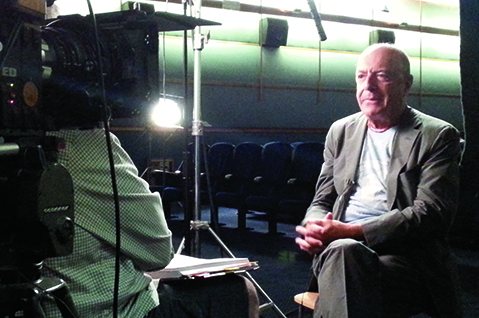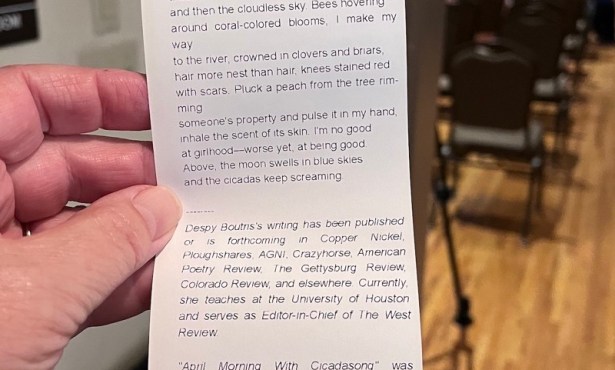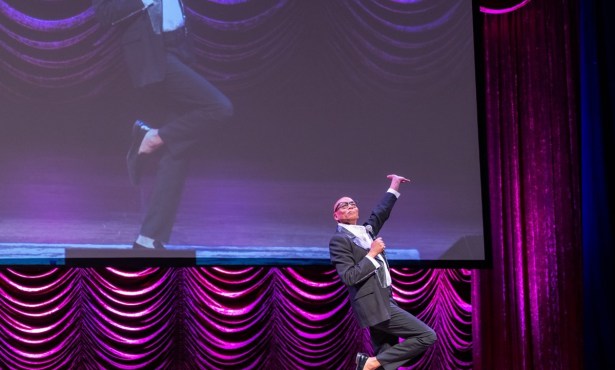‘Being George Clooney’
Director Paul Mariano

In his fascinating, charming film, director Paul Mariano goes behind the scenes to reveal the men and women who dub the voices of American movie stars in countries including Italy, France, Turkey, and Brazil. Being George Clooney is for film dubbers what Twenty Feet from Stardom is for back-up singers — and a definite festival must-see.
See www.beinggeorgeclooney.com.
How did learn about the dubbing profession?
I read an article in a magazine about the French voice of a famous American actor (Je suis Brad Pitt).
I was intrigued. I wanted to know more about the concept and the world of voice actors, those people who provide the sound for these famous Hollywood faces. Who are these people that work in the dark and provide the voices of “our stars”? How did they get started doing this work? Are they well compensated? Do they enjoy being heard but never seen? And so, I set out to meet these famous voices and learn about the world of dubbing.
Why did you choose to focus on the men who dubbed for George Clooney rather than another famous actor?
We were looking for a singular Hollywood actor, someone who was both famous and fun; someone who was loved by both men and women. George Clooney seemed to be the perfect vehicle to tell this story. As the German voice of Clooney says in the film: “He is cool. He is charming. He is beautiful.” George Clooney is the modern-day Cary Grant.
This seems a departure from your usual documentary subject matter. What made you decide to pursue it?
Like most people, I love the movies. I love how they can transport and transform us, how they excite and entertain us. But, I am also fascinated by the “behind-the-scenes” action. How do they make the magic? I read an article about dubbing and dubbers, and while I was aware that films were dubbed, I was unfamiliar with the process, the problems or the personalities. The more I learned about the process and the people involved, the more I realized how important this part of filmmaking was to audiences around the world. It was a subject that was clearly “Doc-worthy.”
The film touches on the rights of dubbers — or lack thereof — in terms of getting payment for distribution, etc. Has there been any forward movement regarding rights for the dubbing artists?
Sadly, very little. In a few countries, dubbers have unionized (or have joined actor’s unions) which has provided some minimal protection and increased wages. Although dubbing is an art form, voice actors are often not viewed by the industry as “real actors.” In most areas around the world, dubbers are viewed as fungible or easily exchangeable. Thus, they are not accorded either the respect or the rights they deserve.
When dubbers in France went on strike for better pay (in the early ’90s), the French dubbing studios and distributors merely went to Belgium and got substitute voices.
Why do you think the U.S. doesn’t tend to dub foreign films screened here into English, but rather still utilize subtitles?
Most foreign films screened in the United States are subtitled rather than dubbed. I think there are a number of reasons for this. Most foreign countries have a long history and tradition of dubbing American films into their language. America does not have that history or tradition. Also, dubbing American films was preferred in foreign countries because of illiteracy. Many foreign filmgoers could not read subtitles, and thus dubbing was necessary. Another factor in the United States is that subtitling is (much) cheaper than dubbing, and thus studios can save money by subtitling a foreign film.



